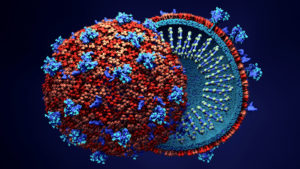COVID-19 slows down cholera spread in Eastern Region
 Dr Arko Akoto-Ampaw, the Medical Director of the Eastern Regional Hospital, says the COVID-19 pandemic has highlighted the importance of personal hygiene, which has helped to prevent infectious and water-borne diseases like cholera.
Dr Arko Akoto-Ampaw, the Medical Director of the Eastern Regional Hospital, says the COVID-19 pandemic has highlighted the importance of personal hygiene, which has helped to prevent infectious and water-borne diseases like cholera.
He said despite the devastating consequences of the coronavirus pandemic on personal health and health infrastructure, it had significantly contributed to slowing down cholera spread in the Region.
Dr Akoto-Ampaw was contributing to a panel discussion on “keeping Ghana clean” during a sanitation dialogue organised by the Graphic Communications Group Limited (GCGL), in collaboration with Zoomlion Ghana in Koforidua.
The GCGL launched a National Sanitation Awareness Campaign in April, 2021, calling for strict enforcement of sanitation bye-laws as well as naming and shaming sanitation offenders.
The campaign was taken to the Ashanti and Volta regions and lately to the Eastern Region to dialogue with stakeholders including local/traditional authorities and the public towards finding sustainable solutions to Ghana’s sanitation challenges, especially in the capital cities.
“Before COVID-19 there was no washing of hands, no social distancing or hand sanitisation…the cholera organism cannot survive under hand washing and sanitisation. This has helped in the containment of cholera and other diseases, so all of us must observe the protocols,” Dr Akoto-Ampaw said.
Though he stopped short of giving out statistics to buttress his comment, he attributed it to the availability of sustainable water and sanitation hygiene utilities and products, preventing the potential outbreak of cholera in most vulnerable communities.
That, he said, was due to access to safe drinking water, basic sanitation facilities, hand-washing services including soaps and water and alcohol-based hand rubs as well as increasing community engagement and awareness to improve personal hygiene practices.
Both the World Bank and the World Health Organisation (WHO) have recommended the provision of these services in healthcare facilities, schools, workplaces, transport stations, and other areas of public gathering.
This is also emphasised by the United Nations Sustainable Development Goals in both Goal-Three (ensuring healthy lives and wellbeing for all) and Goal-Six (access to water and sanitation for all).
Dr Akoto-Ampaw said sanitation remained vital in health and expanding lifespan and, therefore, called on all to take personal hygiene seriously.
He warned that COVID-19 cases were still on the rise and encouraged people to always do the needful by observing all the preventive protocols, saying; “Those of us in the hospitals are seeing more cases of COVID.”
Daasebre Prof Oti Boateng, the Omanhene of New Juaben Traditional Area, called for the involvement of communities in tackling Ghana’s poor sanitation problem to guarantee long-term solutions to disease control and universal access to safe drinking water.
“Such inclusive and sustained social interventions offer the best strategy to move Ghana rapidly beyond the stagnant and abysmal 15 per cent improved sanitation coverage to a more desirable and acceptable threshold,” he added.
Mr Kobby Asmah, the Editor of the Daily Graphic, said the GCGL had declared 2021 the “Year of Sanitation” and was focused on mounting an intensive campaign to ensure the public adhered to good sanitation habits and practices.
“Clearly, there is a problem with dealing with filth in the country, and to keep Ghana clean will require all hands on deck,” he said.
“Everyone has a responsibility to ensure that his or her environment is always clean.”
Source: GNA
